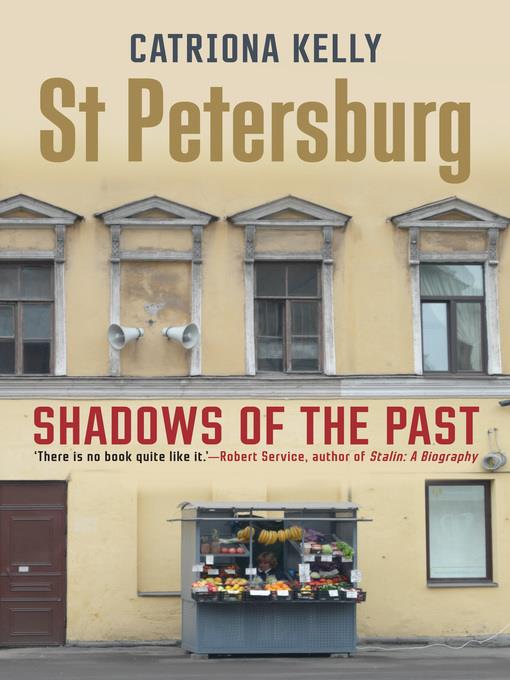
St Petersburg
Shadows of the Past
- اطلاعات
- نقد و بررسی
- دیدگاه کاربران
نقد و بررسی

March 3, 2014
Drawing on official documents, literature, art, memoirs, oral history, and personal observations of city streets and buildings, Kelly, professor of Russian at Oxford, offers a history/sociological study/travelogue of Leningrad-St. Petersburg from the late 1950s to the 2010s. "Piter" denizens have a reputation for being formidably reserved and defined by WWII experiences, though its status as cultural capital was long defined through the glories of the Kirov ballet and classical music. Film, painting, and theater also thrived, as did an alternative art scene in the 1970s; but by 2010 "ordinary Petersburgers were no longer so awestruck by the arts." In the Soviet era, major factories aimed "to cater to every aspect of its workforce's needs," shopping meant long queues, "Western goods, films, and magazines... set the standards of taste," and the kitchen was the home's center. In post-Soviet Petersburg, people feared that food was "less âhealthy' and âtasty' than in the past"; an obsession with cars created wild road conditions; and a "devastating lack of trust in officials" prevailed. Although this well-researched, ambitious book is often engrossing, the sprawling nature of its material overwhelms and its amorphous style of writing is frustrating, making it less appropriate for general readers and more suitable to academics specializing in Russian sociology, history, and civil engineering. Illus.

February 1, 2014
Early on in her erudite and fascinating account of what was Leningrad under the Soviets and is now again St. Petersburg, Kelly (Russian, Univ. of Oxford; Refining Russia: Advice Literature, Polite Culture, and Gender from Catherine to Yeltsin) informs us that she wants to attempt something grand about an inward-looking city that has suffered tragically. Her book is a way of viewing memory through literature and accounts of daily life. She states, "At one level, I am preoccupied with how Leningrad-Petersburg and its culture have been imagined; at others, with concrete layers of experience as they are now remembered." Kelly manages skillfully to weave together many different archival and published sources from both well-known literary figures (e.g., Joseph Brodsky), filmmakers, and ordinary working people discussing St. Petersburg architecture, landscapes, housing, transport systems, theater, and intellectual life. VERDICT Kelly knows St. Petersburg well from her travels and academic studies. She concludes that the city cannot be fully understood through a Western lens that sees Soviet totalitarianism and desperation rather than "many and contrary voices." For readers of serious travel memoirs and/or seekers of deeper cultural truths about a complex urban landscape.--Amy Lewontin, Northeastern Univ. Lib., Boston
Copyright 2014 Library Journal, LLC Used with permission.

Starred review from January 1, 2014
The city of St. Petersburg was founded by Czar Peter the Great in 1703, and he viewed it as a window to the West that would enhance his drive to modernize Russia. Indeed, visitors from the West, viewing the wide avenues, magnificent museums, and elegant architecture, often commented on the cosmopolitan nature of the city, contrasting it with a more insular, even dreary, Moscow. Kelly is professor of Russian at Oxford and lives both in Oxford and St. Petersburg. In this excellent examination of the history, art, and everyday life of its citizens, she paints a much more nuanced and interesting portrait of this city on the Baltic. Based on personal experiences, her conversations with friends and acquaintances, and her knowledge of the history and culture, she describes St. Petersburg as a surprisingly inward-looking city, still dealing with problems from the Soviet era, including the prolonged siege by the Nazis and the postwar Stalinist purges. Kelly pays ample tribute to the beauty and artistic glitter, but she also covers a city plagued by a host of typical urban problems, including the squalor of the poorer neighborhoods. This is a well-written and honest look at a large, fascinating, and rapidly evolving city.(Reprinted with permission of Booklist, copyright 2014, American Library Association.)




دیدگاه کاربران